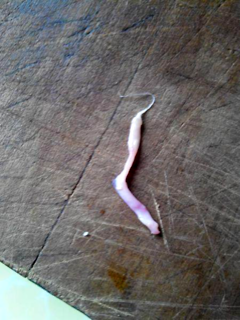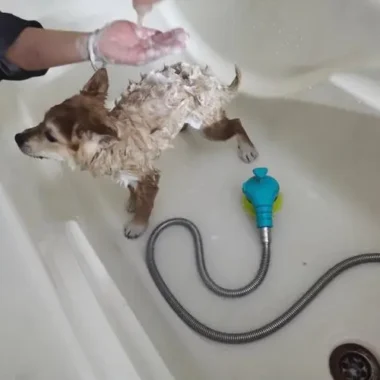Recently, I noticed something on my cat’s rear that looked like small white rice grains. At first, I thought it was just litter stuck to her fur, but to my surprise, these things were moving! I quickly consulted with a vet and learned it was cat tapeworms.

There are several types of cat tapeworms, including Dipylidium caninum, which is most common. Adult tapeworms reside in the intestines of cats and dogs, with fleas serving as intermediate hosts. Cats can ingest infected fleas while grooming, leading to tapeworm infection. Humans can also accidentally ingest fleas, allowing tapeworms to develop inside them, causing symptoms like diarrhea and anal itching. If left untreated, tapeworms can cause intestinal blockages and malnutrition due to nutrient absorption by the worms.
To ensure the health of both cats and their owners, it’s crucial to promptly administer appropriate deworming medication when tapeworms are suspected. Currently, popular options include Drontal and Profender. Drontal contains praziquantel and pyrantel, while Profender includes emodepside and praziquantel. Both medications effectively kill tapeworms, primarily through praziquantel.
Profender, in particular, is recommended for its ease of use—simply apply the topical solution to the skin at the base of the cat’s neck and let it absorb through the skin into the bloodstream, where it can eliminate tapeworms effectively.
Although Drontal is advertised as effective against both internal and external parasites, it may not fully eradicate external parasites like fleas, making it less comprehensive compared to Profender. Profender, on the other hand, offers broad-spectrum protection against external parasites such as ticks and fleas, flea eggs, larvae, and pupae, as well as ear mites, mange mites, and lice. For pet owners, this means that a single treatment can cover all routine deworming needs without the necessity of additional products, providing convenience.

It’s important to note that deworming isn’t a one-time event—it requires regular monthly treatments to ensure that cats remain free from parasites. This regimen is essential as cats are constantly at risk of parasite infections, whether through mosquito bites transmitting heartworms, raw meat consumption leading to tapeworms, young cats being susceptible to roundworms, or dirty environments facilitating flea infestations—all of which pose potential risks. Regular deworming not only safeguards the health of cats but also takes responsibility for the well-being of both owners and their families.








